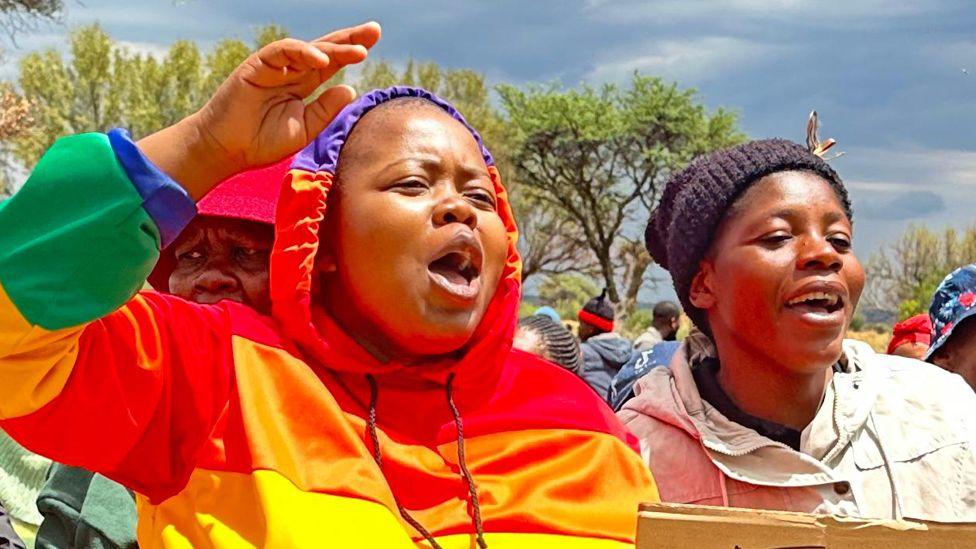In Stilfontein, South Africa, a dire situation has unfolded as dozens of volunteers have bravely entered an abandoned gold mine to aid illegal miners trapped underground. These miners, often referred to as “zama zama,” meaning “take a chance” in Zulu, have reportedly been underground for nearly a month, battling extreme conditions and limited access to food and water. The South African government has taken a hard line against these miners, seeing them as criminals and refusing to allow aid, which has led to significant human rights concerns. Fearing arrest and deportation, the undocumented miners have resisted authorities, worsening the humanitarian crisis inside the mine.
The plight of these illegal miners is exacerbated by dire health conditions and a lack of basic necessities. Reports indicate that some miners have resorted to consuming vinegar and toothpaste in lieu of proper food, highlighting the severity of their situation. Volunteers, organized in groups, have committed to rescuing those still below the surface, taking up to an hour to safely extract each person. Criticism has mounted against the government’s approach, with volunteers like Lebogang Maiyane condemning the authorities for neglecting the rights and lives of these miners. The situation underscores a larger problem of illegal mining in South Africa, which has emerged due to economic hardships and a lack of viable job opportunities following the closures of many legal mines.
As the operation to retrieve miners continues, community members have voiced their distress over the government’s inaction and the refusal to send aid. Protests have surfaced from the families of the miners, demanding action from the authorities while also threatening to hold them accountable for perceived neglect. Police Minister Senzo Mchunu’s visit to the site ended in frustration, as he faced hostility from community members seeking information about their loved ones. The complicated dynamics of the situation are compounded by the fact that some miners may be armed and affiliated with criminal syndicates, creating an environment where police are reluctant to enter the mine to provide assistance.
Concerns have been raised regarding the psychological toll on both the miners and volunteers involved in the rescue efforts. Reports of decomposing bodies being recovered have led to traumatic experiences for those trying to help. Despite the government’s blockade of food and water supplies, they have recently allowed some local residents to send down minimal supplies via rope. This fragile compromise highlights the desperate circumstances underground and the challenges faced by volunteers trying to coax the miners out. Communication between the miners and volunteers has been limited to notes passed via rope, marking a unique and harrowing method of conveying information amidst crisis.
The South African Human Rights Commission has announced plans to investigate the police’s handling of the situation, particularly their decision to withhold food and water from the miners trapped below. The right to life is at the forefront of concerns as families fear for the safety and health of their loved ones. This investigation will assess whether the government’s operations might inadvertently contribute to fatalities among these vulnerable individuals. The community response has been mixed, with opinions varying widely about the government’s firm stance against illegal mining. Some citizens support tougher measures to deter illegal activities, while others denounce the approach as inhumane.
Illegal mining has emerged as a significant issue within South Africa, driven by economic desperation among people unable to find legitimate work. As authorities step up their efforts to combat this practice, challenges remain regarding safety, morality, and the implications of aggressive policing. Since a government crackdown began, significant amounts of illegal arms, money, and diamond resources have been confiscated, emphasizing the lucrative nature of illegal mining businesses. Stakeholders must navigate the delicate balance between applying the law and addressing the humanitarian crisis that continues to unfold within these mining sites, ensuring that the rights and lives of individuals are not sacrificed in the name of enforcement.

